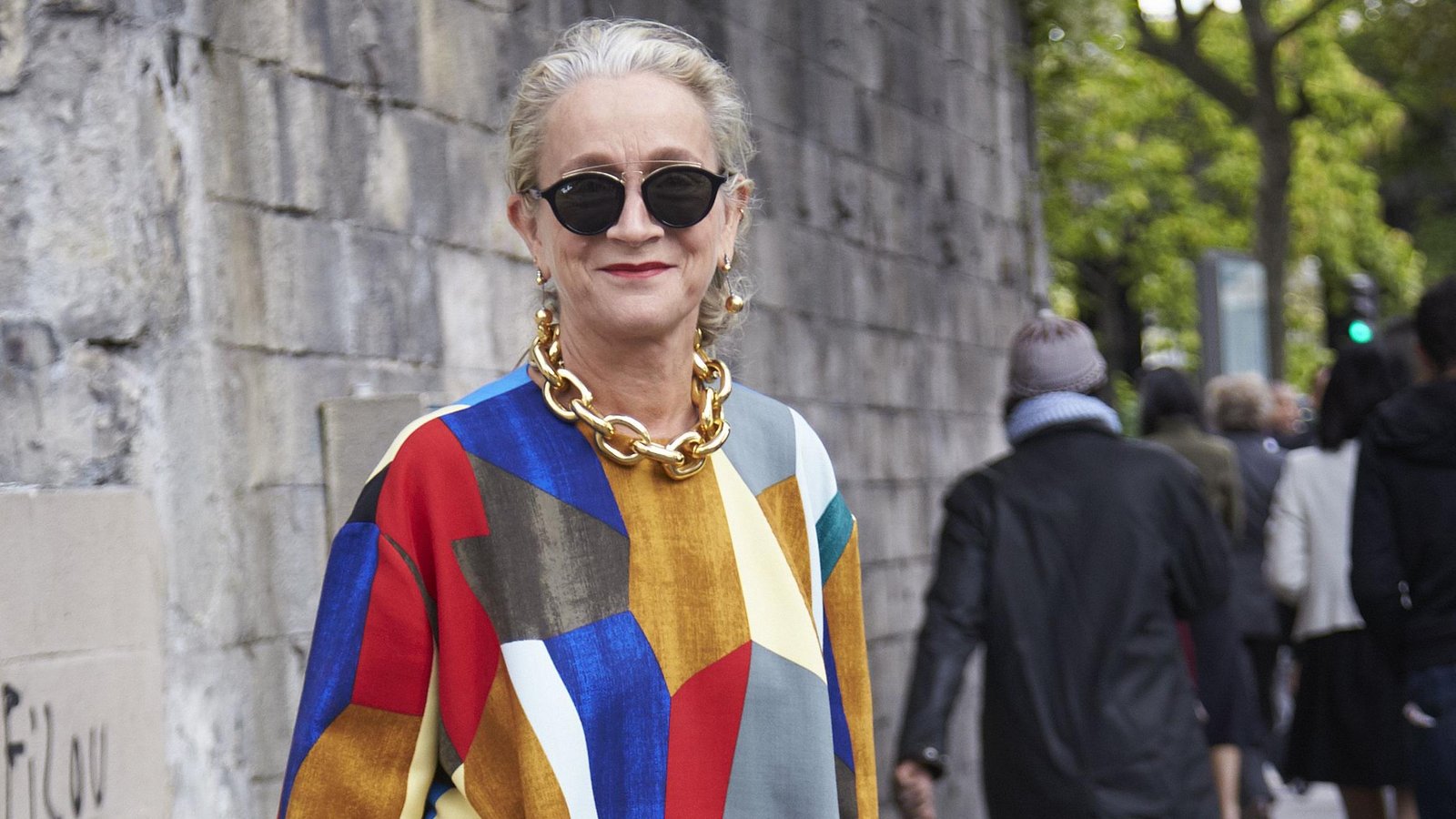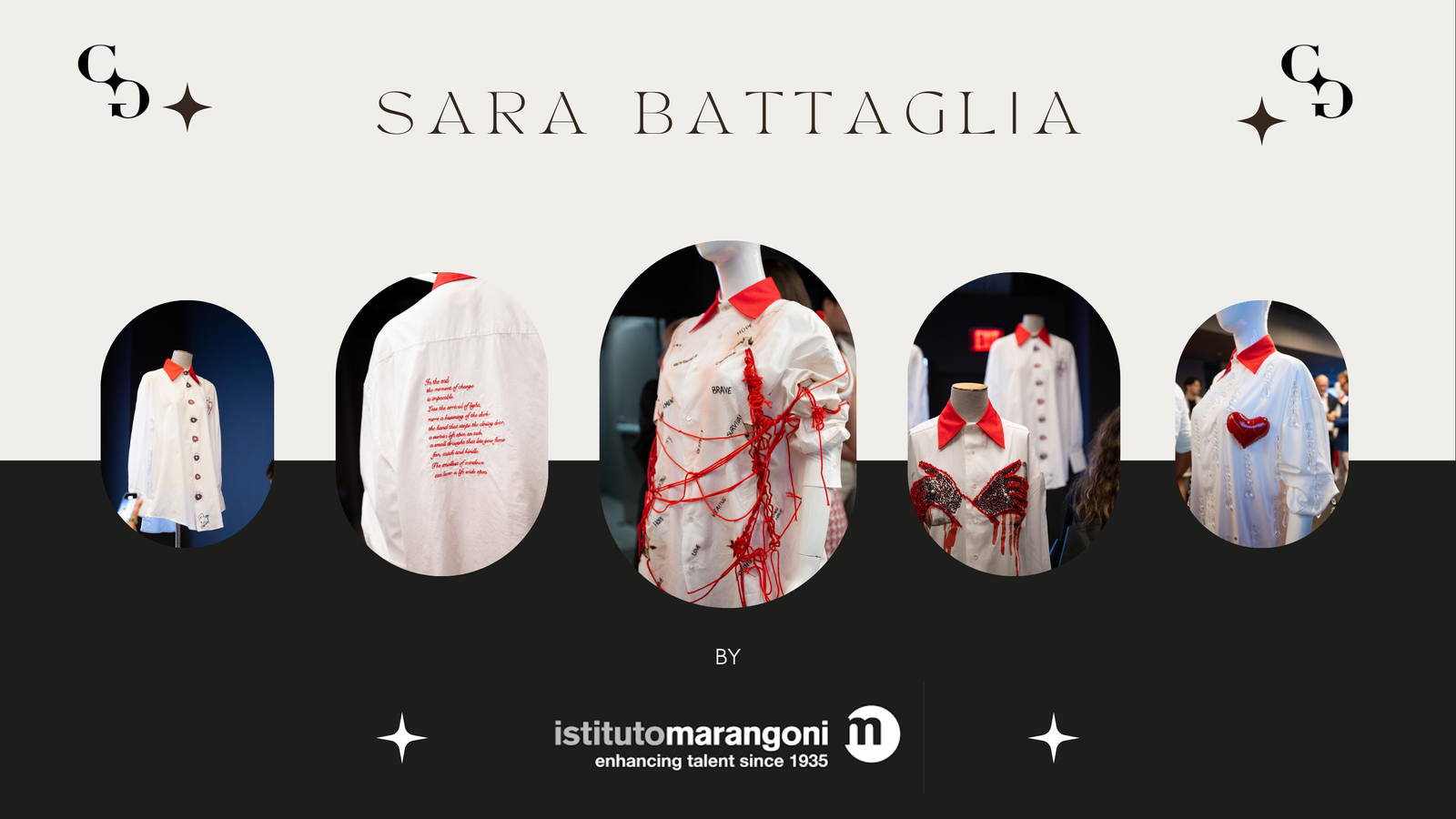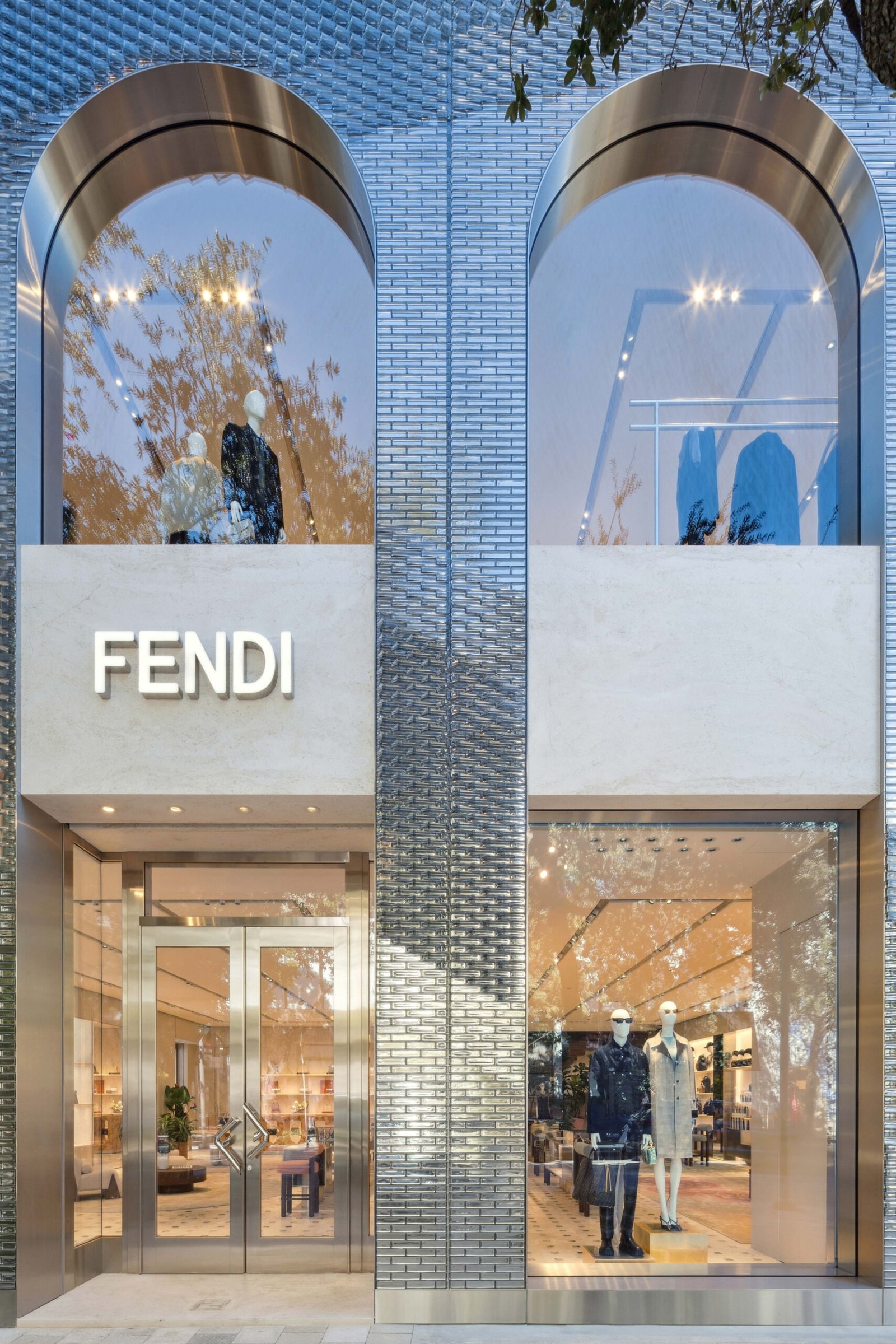Lucila Chambers, ex directora de la Vogue Británica, confesó a Vestoj.com que “no leía la revista hace años”, y que “se había convertido en una máquina de vender cosas que no necesitamos”.
Ayer en medio de la previa de un desfile una diseñadora me decía “no sé hacia dónde va esto”, haciendo referencia a la industria de la moda. Hoy Lucinda Chambers, ex Fashion Director de la Vogue Británica es despedida de un día para el otro luego de 25 años de carrera por un “cambio editorial”. Algo similar sucedió en Argentina hace casi dos meses, cuando el grupo Televisa decidió cerrar cinco revistas que se producían íntegramente en Buenos Aires, entre ellas la respetada Harper’s Bazaar Argentina y la reconocida Cosmopolitan Argentina. Equipos enteros de trabajos fueron como todos los días a realizar sus tareas y se encontraron con policías en la puerta que esperaban a que saquen sus pertenencias del edificio. Ése mismo día y en ése mismo día paradójicamente había sido convocada a exponer el caso de Chicas Guapas y a hablar sobre “Neolujo y Nuevas Plataformas de Comunicación” en Luxe Up!, la primera jornada entorno al Negocio del Lujo organizada en la Universidad de Palermo organizada por Marce García. Apenas terminé de dar mi exposición, me enteré compartiendo un café con colegas de esta terrible noticia y fue inevitable reflexionar y comentar la situación entre profesionales respetados del medio.

Estaba muy triste por la noticia, pero también durante años me entristecía ver como ciertos diseñadores no eran tenidos en cuenta en sus editoriales, ni que jamás hayamos tenido un espacio con Chicas Guapas en aquellas revistas que tanto admirábamos. Qué genial hubiera sido unir a las profesionales más importantes de moda junto a las nuevas voces que estaban emergiendo en las redes sociales. Como productora, cuando decidí armar un magazine de moda digital enseguida busqué a la mejor profesional que es Ana Torrejón, ex Directora de Harper’s Bazaar Argentina. Ana siempre fue visionaria en cuanto a los medios, ella misma supo construir su marca personal y es de las pocas periodistas que siempre se interesó por dar lugar a nuevos talentos. Su voto de confianza en mí -y sé que en el de muchos más también-, fue vital para este proyecto por eso estaba sumamente indignada de que ella también haya pasado un maltrato similar al de Lucinda de parte del grupo Televisa. Unas horas después de la charla, había un desfile con tres marcas emergentes en la otra punta de la ciudad y sentí la responsabilidad de cubrirlo con Chicas Guapas y ayudar a difundir sus trabajos. Y ésa responsabilidad sigue latente hoy en día.
¿Hacia dónde van los medios de comunicación? ¿Qué va a pasar con la Industria de la Moda?
Si bien mi formación fue como Profesora y Licenciada en Artes Combinadas en la Universidad de Buenos Aires, llevo años trabajando en Producción y Comunicación Digital a nivel regional en distintos medios donde terminé conociendo cada vez más la realidad de los diseñadores emergentes. Justamente cuando creé el proyecto transmedia de Chicas Guapas el manifiesto fundacional -que pueden encontrar en el “About us”-, siempre tuvimos como objetivo apoyar a nuevos talentos, a diseñadores emergentes y a emprendedoras mientras que en paralelo mostrábamos las marcas internacionales como aspiracional, ya que muchas ni si quiera se venden en nuestro país.
Lamentablemente muchos medios se dejan llevar sólo por intereses comerciales y no hay un interés real y genuino por el talento y esfuerzo humano que hace cada diseñador o emprendedor. Todos necesitamos la pauta comercial para que los medios sigan existiendo, pero justamente necesitamos que gente real que genuinamente cree, usa y apoya ciertas marcas o productos los comunique desde su subjetividad que tiene que ser consistente y sólida en el tiempo. Y allí radica el éxito de los “influencers”.
Así como hay revistas que perdieron su rumbo, lo mismo sucede con algunos influencers que buscan fórmulas “mágicas” o repetidas. La voz propia y en primera en persona que prioriza los vínculos reales y a largo plazo serán la premisa -sí, casi como una relación amorosa-. Por eso ayer, desde mi humilde opinión le contesté a la diseñadora:
“Creo que gradualmente vamos a tener más conciencia de la importancia de la moda sustentable, de saber quién hace nuestras prendas, de que los trabajadores y diseñadores tenga salarios dignos; y con respecto a los medios de comunicación, creo que también vamos a pasar a contenidos más honestos y reales. Van a seguir existiendo las pautas publicitarias, pero con productos que quien esté detrás escribiendo o adelante promocionándolos, genuinamente los use y sea consumidor. Acompañado de una ida y vuelta real con quién está del otro lado de la pantalla que también quiere ser protagonista y que a su vez es influenciador dentro de su círculo social”.
Veremos cómo continúa todo esto…
L*

Artículo Original from vestoj.com
WILL I GET A TICKET?
A Conversation About Life After Vogue With Lucinda Chambers
EDITOR’S NOTE: Due to the sensitive nature of this article, we took the decision to temporarily remove it from the site. What you will read below, however, is the original article in its entirety.
WE MEET AT A cosy private club in West London, the sort of hangout popular with fashion professionals who believe in the semblance of bohemia. For thirty-six years she’s been working at British Vogue, twenty-five of those as the magazine’s fashion director, but not long before we meet the fashion press has been full of headlines announcing her departure. We order lattes, and I’m struck by how candid she is.

Scott King, “How I’d Sink American Vogue,” 2006. Courtesy Herald St, London.
A month and a half ago I was fired from Vogue. It took them three minutes to do it. No one in the building knew it was going to happen. The management and the editor I’ve worked with for twenty-five years had no idea. Nor did HR. Even the chairman told me he didn’t know it was going to happen. No one knew, except the man who did it – the new editor. Afterwards I walked out and ran into the publisher. ‘Oh Lucinda! How are you?’ I told him I’d just been fired. He said, ‘Outrageous! Ridiculous! Crazy!’ I phoned my lawyer; she asked me what I wanted to do about it. I told her I wanted to write a letter to my colleagues to tell them that Edward [Enninful] decided to let me go. And to say how proud I am to have worked at Vogue for as long as I did, to thank them for being such brilliant colleagues. My lawyer said sure, but don’t tell HR. They wouldn’t have wanted me to send it.
Later I was having lunch with an old friend who had just been fired from Sotheby’s. She said to me, ‘Lucinda, will you please stop telling people that you’ve been fired.’ I asked her why – it’s nothing I’m ashamed of. She told me, ‘If you keep talking about it, then thatbecomes the story. The story should be that you’ve had the most incredible career for over thirty years. The story shouldn’t be that you’ve been fired. Don’t muck up the story.’ But I don’t want to be that person. I don’t want to be the person who puts on a brave face and tells everyone, ‘Oh, I decided to leave the company,’ when everyone knows you were really fired. There’s too much smoke and mirrors in the industry as it is. And anyway, I didn’t leave. I was fired.
Fashion can chew you up and spit you out. I worked with a brilliant designer when I was at Marni – Paulo Melim Andersson. I adored him. He was challenging, but highly intelligent. Fragile, like a lot of creative people. We had our ups and downs, but he stayed with us for seven years. Then Chloé came along. The CEO at the time asked my advice about Paulo and I told him, ‘Paulo is great, but you have to know that he won’t turn the brand around for you in a season or even two. You’ve got to give him time, and surround him by the right people.’ ‘Absolutely, absolutely,’ he said. ‘I’ll do that.’ Three seasons later Paulo was out. They didn’t give him time, and he never got his people. I felt so sad for Paulo. If you want good results, you have to support people. You don’t get the best out of anyone by making them feel insecure or nervous. Ultimately, that way of treating people is only about control. If you make someone feel nervous, you’ve got them. But in my view, you’ve got them in the wrong way. You’ve got them in a state of anxiety. I’m thinking of one fashion editor in particular: it’s his modus operandi. He will wrong-foot you and wrong-foot you, and have everyone going, ‘Shit, shit, shit, shit, shit.’
You’re not allowed to fail in fashion – especially in this age of social media, when everything is about leading a successful, amazing life. Nobody today is allowed to fail, instead the prospect causes anxiety and terror. But why can’t we celebrate failure? After all, it helps us grow and develop. I’m not ashamed of what happened to me. If my shoots were really crappy… Oh I know they weren’t all good – some were crappy. The June cover with Alexa Chung in a stupid Michael Kors T-shirt iscrap. He’s a big advertiser so I knew why I had to do it. I knew it was cheesy when I was doing it, and I did it anyway. Ok, whatever. But there were others… There were others that were great.
In fashion people take you on your own estimation of yourself – that’s just a given. You can walk into a room feeling pumped up and confident, and if you radiate that the industry will believe in what you project. If, on the other hand, you appear vulnerable you won’t be seen as a winner. I remember a long time ago, when I was on maternity leave, Vogue employed a new fashion editor. When I met with my editor after having had my baby, she told me about her. She said, ‘Oh Lucinda, I’ve employed someone and she looked fantastic. She was wearing a red velvet dress and a pair of Wellington boots to the interview.’ This was twenty years ago. She went on, ‘She’s never done a shoot before. But she’s absolutely beautiful and so confident. I just fell in love with the way she looked.’ And I went, ‘Ok, ok. Let’s give her a go.’ She was a terrible stylist. Just terrible. But in fashion you can go far if you look fantastic and confident – no one wants to be the one to say ‘… but they’re crap.’ Honestly Anja, you can go quite far just with that. Fashion is full of anxious people. No one wants to be the one missing out.
Fashion moves like a shoal of fish; it’s cyclical and reactionary. Nobody can stay relevant for a lifetime – you always have peaks and troughs. The problem is that people are greedy. They think, ‘It worked then, we’ve got to make it work now.’ But fashion is an alchemy: it’s the right person at the right company at the right time. Creativity is a really hard thing to quantify and harness. The rise of the high street has put new expectations on big companies like LVMH. Businessmen are trying to get their creatives to behave in a businesslike way; everyone wants more and more, faster and faster. Big companies demand so much more from their designers – we’ve seen the casualties. It’s really hard. Those designers are going to have drink problems, they’re going to have drug problems. They’re going to have nervous breakdowns. It’s too much to ask a designer to do eight, or in some cases sixteen, collections a year. The designers do it, but they do it badly – and then they’re out. They fail in a very public way. How do you then get the confidence to say I will go back in and do it again?
The most authentic company I ever worked for is Marni. We didn’t advertise, and what we showed on the catwalk we always produced. We never wanted to be ‘in fashion.’ If you bought a skirt twenty years ago, you can still wear it today. We never changed the goalposts. Our shows were about empowering women. We always treated our models beautifully and had incredible diversity in the company: my team was half boys, half girls, all different nationalities. It was very transparent, but when the company was sold everything changed. The Castiglionis were naïve. They sold sixty percent of the company, thinking that the new owner would respect what they had built. I never understood why they sold it to Renzo Rosso of all people. He is the antithesis of everything Marni stood for. The antithesis. When Consuelo left, I remember thinking why not give the design task to someone from the team? It would have been a reflection of how fashion is created today, and it worked for Gucci – Alessandro Michele had been at the brand forever before becoming the creative director. I talked to Renzo and he agreed, but then at the last minute he changed his mind. He brought Francesco Risso onboard, who had nothing to do with the company. Before Marni, he did celebrity dressing at Prada. He’d never done a show, he’d never run a team. But he knows Anna Wintour. And who is Renzo Rosso enthralled by? Anna Wintour. The last womenswear collection at Marni was a disaster; it had terrible reviews. The show was appalling. I heard the cost to produce it was two-and-a-half times what we used to spend, and it sold fifty percent less. A lot of American buyers didn’t even bother to turn up. Marni is no more. It saddens me, but then I remind myself that from the ashes something new can emerge.
When Vetements came on the scene, what they were doing felt very new. At that particular time, it wasn’t what anyone else was doing. And when I saw the last Balenciaga show… Okay, you could say it’s a bit Margiela or a bit this or that, but honestly I was really really really excited. You know what was smart about it? It was the scale – you saw this tiny model emerge and it took forever for her to get close to the audience. It built up expectation. Everything was thought through: the casting, the music, the space. Everything. And I loved how we were all seated: so far from each other, it all felt anonymous. Normally at a fashion show, everyone looks at each other – who wears what, who sits where. ‘Oh, she’s got the new Céline shoes.’ But here you felt as if you were on your own. It was a new feeling.
Fashion shows are all about expectation and anxiety. We’re all on display. It’s theatre. I’m fifty-seven and I know that when the shows come around in September I will feel vulnerable. Will I still get a ticket? Where will I sit? I haven’t had to think about those things for twenty-five years. Most people who leave Vogue end up feeling that they’re lesser than, and the fact is that you’re never bigger than the company you work for. But I have a new idea now, and if it comes off maybe I won’t be feeling so vulnerable after all. We’ll have to wait and see.
There are very few fashion magazines that make you feel empowered. Most leave you totally anxiety-ridden, for not having the right kind of dinner party, setting the table in the right kind of way or meeting the right kind of people. Truth be told, I haven’t read Vogue in years. Maybe I was too close to it after working there for so long, but I never felt I led a Vogue-y kind of life. The clothes are just irrelevant for most people – so ridiculously expensive. What magazines want today is the latest, the exclusive. It’s a shame that magazines have lost the authority they once had. They’ve stopped being useful. In fashion we are always trying to make people buy something they don’t need. We don’t need any more bags, shirts or shoes. So we cajole, bully or encourage people into continue buying. I know glossy magazines are meant to be aspirational, but why not be both useful and aspirational? That’s the kind of fashion magazine I’d like to see.
Lucinda Chambers served as fashion director of British Vogue for 25 years.
Anja Aronowsky Cronberg is Vestoj’s Editor-in-Chief and Founder.







